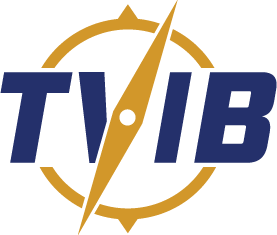 We would like to welcome Ken Lamph to the TVIB team as our new Operations Manager. Ken will be an integral part of our Operations Team and the primary staff resource for our TPO customers based on the lower Mississippi River, Gulf Coast, and East Coast. His focus will be coordinating audit and survey report reviews and supporting our TPO customers’ needs with Subchapter M related Coast Guard needs, from COI issues to CG-835V/Marine Casualty concerns and related TPO activities. He will also be assisting in developing and delivering training for auditors, surveyors, and customers, and involved in the drydock/internal structural examinations for TPO customers.
We would like to welcome Ken Lamph to the TVIB team as our new Operations Manager. Ken will be an integral part of our Operations Team and the primary staff resource for our TPO customers based on the lower Mississippi River, Gulf Coast, and East Coast. His focus will be coordinating audit and survey report reviews and supporting our TPO customers’ needs with Subchapter M related Coast Guard needs, from COI issues to CG-835V/Marine Casualty concerns and related TPO activities. He will also be assisting in developing and delivering training for auditors, surveyors, and customers, and involved in the drydock/internal structural examinations for TPO customers.
Ken has over 21 years of marine-related experience through his service in the US Coast Guard. Ken’s time as a member of the Coast Guard has provided him the opportunity to advance through a series of engineer and inspector positions, each with increasing responsibility. Ken has worked across a broad range of disciplines ranging from project planning, operations, engineering maintenance, and casualty correction. He has been directly interacting with TPOs over the last few years during the initial implementation of Subchapter M. He has conducted drydock/internal structural examinations and verified that repairs and testing were conducted in accordance with Coast Guard regulations and industry standards. Ken spent time as an instructor at the Coast Guard’s Yorktown Training Center in both course development and delivery. He has been involved in the improvement of staff performance and skills by revamping operations, maintenance, and training programs at multiple units which led to these units receiving the Coast Guard’s Kimball Award in recognition of outstanding achievement. His assignments have included MSU Paducah, Sector Corpus Christi, Station Yaquina Bay, Yorktown Training Center, Station Mayport, and Station Suislaw River.
With Ken’s engineering and training background, we are excited to have him join our team and add to our strengths in accomplishing our two core missions of providing best-in-class TPO services and training for certification in multiple disciplines.
Ken and his wife Sallissa live in Fancy Farm, KY near Paducah. They have been married for 26 years and have one son who has been accepted into the University of Kentucky’s engineering program. Ken likes to go camping, fishing, hunting, and riding motorcycles. He also enjoys automotive restoration and woodworking.
Ken is transitioning out of the Coast Guard and into civilian life in the coming days and will join us on staff, Monday, February 21st, please be sure to welcome him when you get a chance.

 We would like to welcome Ken Lamph to the TVIB team as our new Operations Manager. Ken will be an integral part of our Operations Team and the primary staff resource for our TPO customers based on the lower Mississippi River, Gulf Coast, and East Coast. His focus will be coordinating audit and survey report reviews and supporting our TPO customers’ needs with Subchapter M related Coast Guard needs, from COI issues to CG-835V/Marine Casualty concerns and related TPO activities. He will also be assisting in developing and delivering training for auditors, surveyors, and customers, and involved in the drydock/internal structural examinations for TPO customers.
We would like to welcome Ken Lamph to the TVIB team as our new Operations Manager. Ken will be an integral part of our Operations Team and the primary staff resource for our TPO customers based on the lower Mississippi River, Gulf Coast, and East Coast. His focus will be coordinating audit and survey report reviews and supporting our TPO customers’ needs with Subchapter M related Coast Guard needs, from COI issues to CG-835V/Marine Casualty concerns and related TPO activities. He will also be assisting in developing and delivering training for auditors, surveyors, and customers, and involved in the drydock/internal structural examinations for TPO customers.